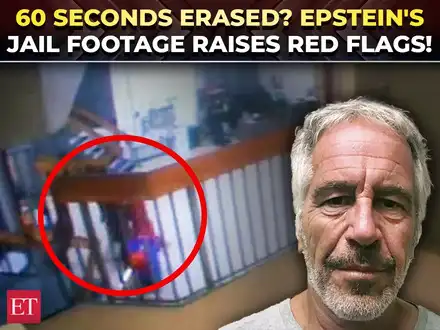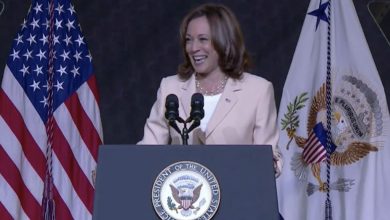Federal Judge Rules Against AG Pam Bondi, Tells DOJ That Motion to Unseal Epstein Transcripts is a Diversionary Tactic, Won’t Help American Public

Federal Judge Richard Berman delivers scathing rebuke of Trump administration’s request to release grand jury materials containing only FBI agent testimony
A federal judge delivered a pointed rejection of the Trump administration’s request to unseal Jeffrey Epstein grand jury transcripts, calling the Justice Department’s motion a “diversion” from the comprehensive files the government already possesses and refuses to release.
Judge Richard Berman’s Wednesday ruling represents the third federal court defeat for Attorney General Pam Bondi’s DOJ in seeking to unseal Epstein-related grand jury materials, with the Manhattan judge revealing that the contested transcripts contain testimony from only a single FBI agent and amount to merely “70-odd pages” compared to 100,000 pages of files the government already holds.
Judge Calls Out DOJ’s Diversionary Tactics
Berman directly challenged the Justice Department’s motives, writing that the grand jury motion “appears to be a ‘diversion’ from the breadth and scope of the Epstein files in the Government’s possession.” The judge emphasized that the federal government possesses 100,000 pages of files and materials that “dwarf the 70-odd pages of Epstein grand jury materials.”
The ruling reveals the meager nature of what DOJ sought to unseal: testimony from a single FBI agent that Judge Berman dismissed as merely a “hearsay snippet.” Meanwhile, the government sits on what the judge described as a “trove” of documents, interviews and exhibits from its comprehensive investigation.
“The Government is a logical party to make comprehensive disclosure to the public of the Epstein files,” Berman wrote, suggesting the administration is pursuing limited disclosures that would generate headlines while avoiding release of more substantial materials that could prove politically damaging.
Pattern of Failed Promises
The rejection comes amid mounting criticism of the Trump administration’s handling of Epstein file transparency. After promising comprehensive releases, Bondi delivered binders to right-wing social media influencers at the White House in February that contained no new information, disappointing even Trump supporters who expected revelations.
The Justice Department began walking back its transparency promises in May, with Bondi reportedly alerting Trump that his name appeared in the files. By July 7, DOJ released an unsigned memo stating they would not release any additional Epstein documents, angering Democrats, the public, and members of Trump’s own political base.
Multiple Court Defeats Expose Strategy
Berman’s ruling represents the latest in a series of judicial rebukes. Judge Paul Engelmayer denied DOJ’s Maxwell case request on August 11, calling the government’s argument “demonstrably false” and warning that unsealing materials would “expose as disingenuous the government’s public explanations for moving to unseal.”
A Florida federal judge also swiftly denied a similar request for grand jury materials from Epstein’s 2005 and 2007 investigations. The coordinated judicial rejection across multiple jurisdictions suggests that federal judges view the administration’s transparency claims with deep skepticism.
Judge Engelmayer specifically warned that unsealing grand jury materials “casually or promiscuously” would undermine public confidence in the justice system, echoing concerns that the Trump administration is treating sensitive legal proceedings as political props.
Protecting Victims While Questioning Motives
Judge Berman cited “possible threats to victims’ safety and privacy” as an additional reason to keep grand jury records sealed, demonstrating concern for those harmed by Epstein’s trafficking network. However, his language about the motion being a “diversion” suggests he viewed the DOJ’s request as more about political theater than victim protection.
The ruling highlights a fundamental tension: while victim safety requires careful handling of sensitive materials, the Trump administration’s selective approach to transparency raises questions about whether it’s genuinely serving victims’ interests or protecting powerful figures who might be implicated in more comprehensive files.
Maxwell Interview and Ongoing Investigation
Despite the court defeats, the Justice Department continues other investigative activities. Deputy Attorney General Todd Blanche conducted a two-day interview with Ghislaine Maxwell on July 24-25 at the U.S. Attorney’s Office in Tallahassee, Florida. The department is working to transcribe a 10-hour audio recording from those sessions.
Maxwell, Epstein’s longtime partner, is serving a 20-year prison sentence for her role in grooming and sexually abusing underage girls. Her cooperation could potentially provide information about other individuals involved in Epstein’s network, though the administration’s handling of such information remains questionable given the pattern of broken transparency promises.
Political Implications
The repeated court defeats undermine the Trump administration’s claims to be pursuing transparency in the Epstein case. The pattern suggests a strategy of making public gestures toward disclosure while avoiding release of materials that might implicate powerful figures or damage the administration politically.
Judge Berman’s characterization of the grand jury request as a “diversion” is particularly damaging, as it implies the Justice Department is deliberately pursuing narrow, less sensitive materials to avoid addressing calls for comprehensive disclosure of the extensive Epstein files in government possession.
Congressional and Public Pressure
The judicial rebukes come as lawmakers from both parties have demanded greater transparency about Epstein’s network and potential government knowledge of his activities. The administration’s failure to deliver on transparency promises, combined with multiple court defeats, may intensify congressional pressure for independent investigations or oversight hearings.
The unsigned July memo announcing no further document releases particularly angered critics who viewed it as emblematic of the administration’s lack of accountability. The refusal to even sign the memo suggested officials wanted to avoid personal responsibility for the decision to end transparency efforts.
Looking Forward
With three federal judges now rejecting DOJ requests to unseal grand jury materials, the Trump administration faces limited legal avenues for generating the appearance of transparency without actually releasing substantial information. The pattern of court defeats, combined with Berman’s explicit criticism of the requests as diversionary, may force the administration to either pursue genuine comprehensive disclosure or abandon transparency claims entirely.
The ruling reinforces that federal judges are not willing to facilitate what they perceive as political theater at the expense of legal precedent and victim protection. Whether the administration will respond by pursuing actual transparency or abandoning the issue remains to be seen, but the judicial skepticism makes clear that symbolic gestures will not satisfy legal standards for unsealing sensitive materials.




